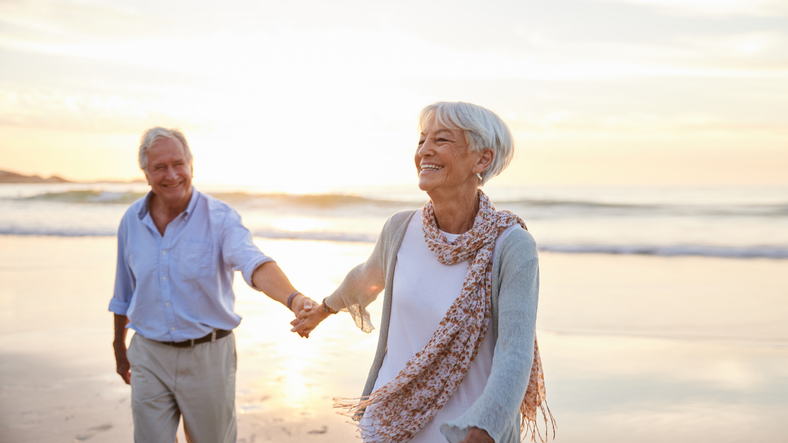
Senior Health: The Benefits of Walking
One simple yet powerful activity that can significantly contribute to our well-being is walking. Walking can be a delightful and accessible form of exercise that can enhance your quality of life at every age. Maintaining an active lifestyle can help reduce various health issues associated with aging. This low-impact form of exercise is great for both physical and mental health, making it an ideal choice for older adults (that said, be sure to speak with a medical professional before changing your exercise regime). With as little as 10 minutes of walking per day, seniors can reap several important health benefits.
So, lace up your walking shoes, grab a friend or a furry companion, and let’s discover some of the joys of walking to improve senior health.
The Physical Benefits of Walking for Seniors
As we age, our metabolism slows down, and this makes it more difficult to maintain our weight. Walking can help slow or reverse this trend by burning extra calories. By maintaining a healthy weight, seniors can reduce the risk of chronic diseases like diabetes, high blood pressure and heart disease. Even those already at a healthy weight can benefit from regular walks. Exercise can lower your blood pressure and cholesterol, further reducing the risk of heart disease and stroke. Regular walks can do more than just strengthen the heart, however. Exercise can enhance strength and flexibility in older adults. This can help reduce the risk of falls as we age, helping seniors stay mobile and independent.Walking and Mental Health
Mental health plays an important role in overall senior health. That’s why the mental benefits of walking are just as important as the physical benefits associated with exercise. While not all adults can partake in rigorous, high-intensity exercises, seniors walking just a short amount of time each day can still experience benefits such as:- Better moods. Walking releases “feel-good” hormones called endorphins that naturally boost mood and lower stress levels. This can result in decreased anxiety.
- Improved sleep. Sleeping can often be more challenging as we age. However, regular exercise can make it easier for seniors to sleep at night, allowing them to get the rest they need to face each day feeling refreshed.
- Reduced loneliness. Unlike sports or other, more intense physical activities, walking is easily accessible for many adults. This makes it great for group activities, and walking with a friend or group of friends can reduce social isolation for better long-term health.

